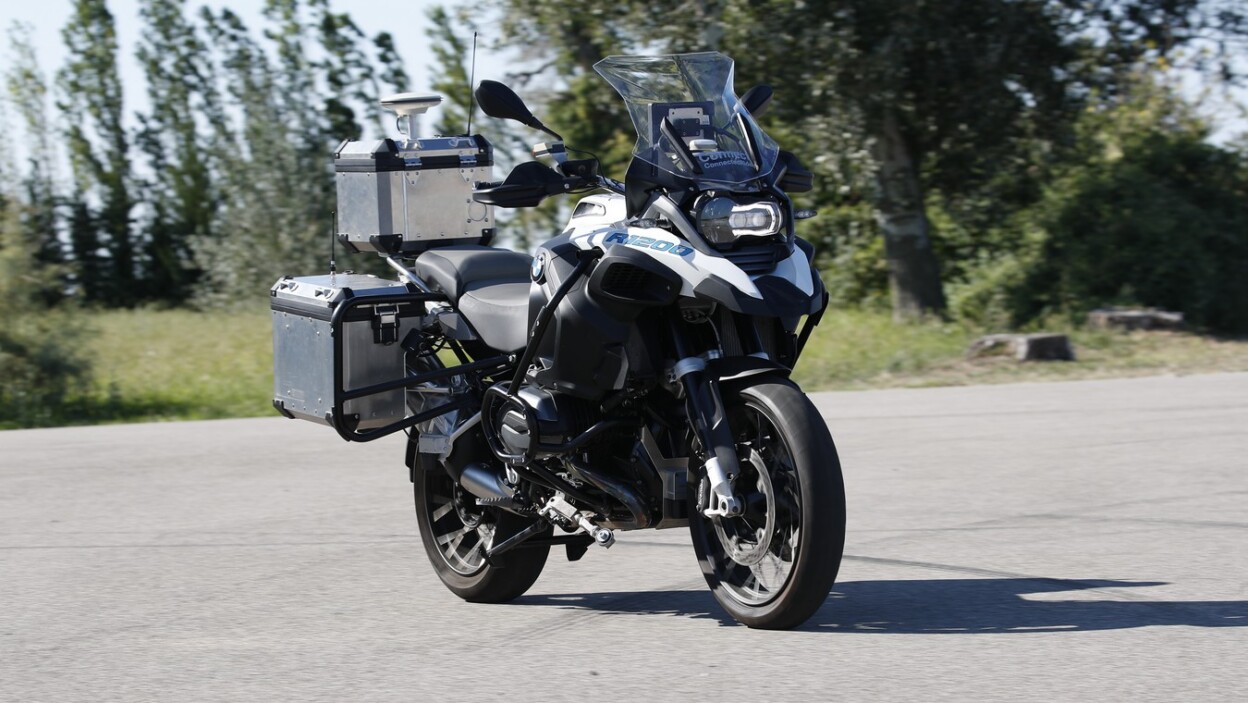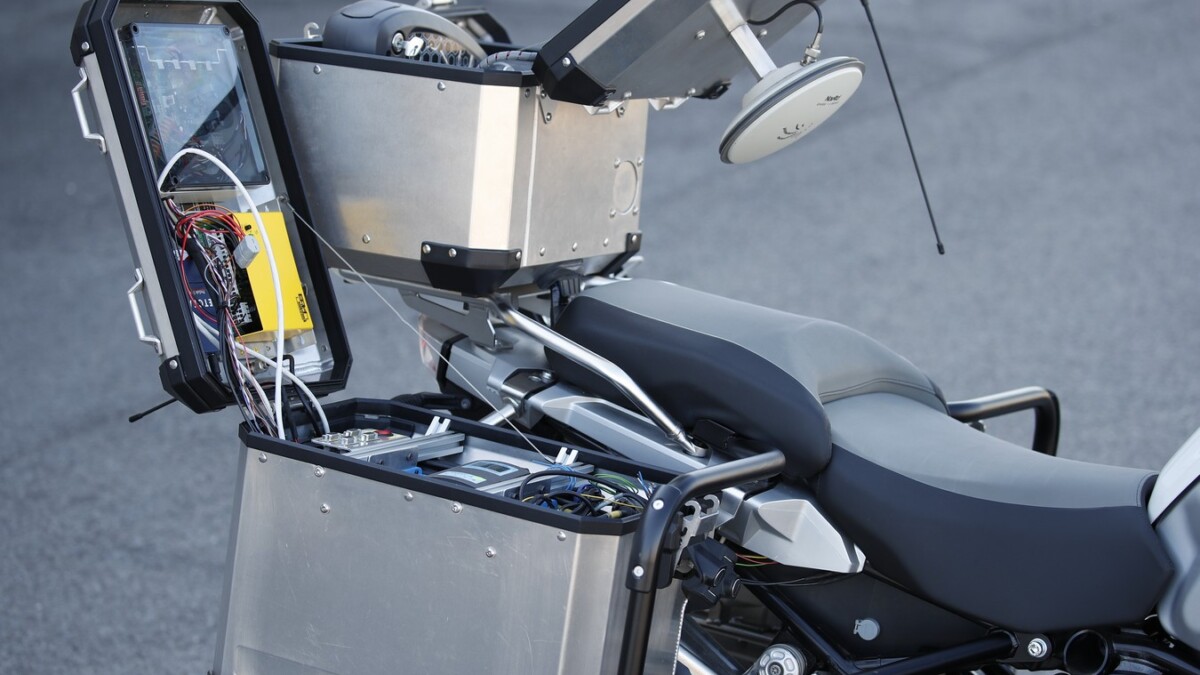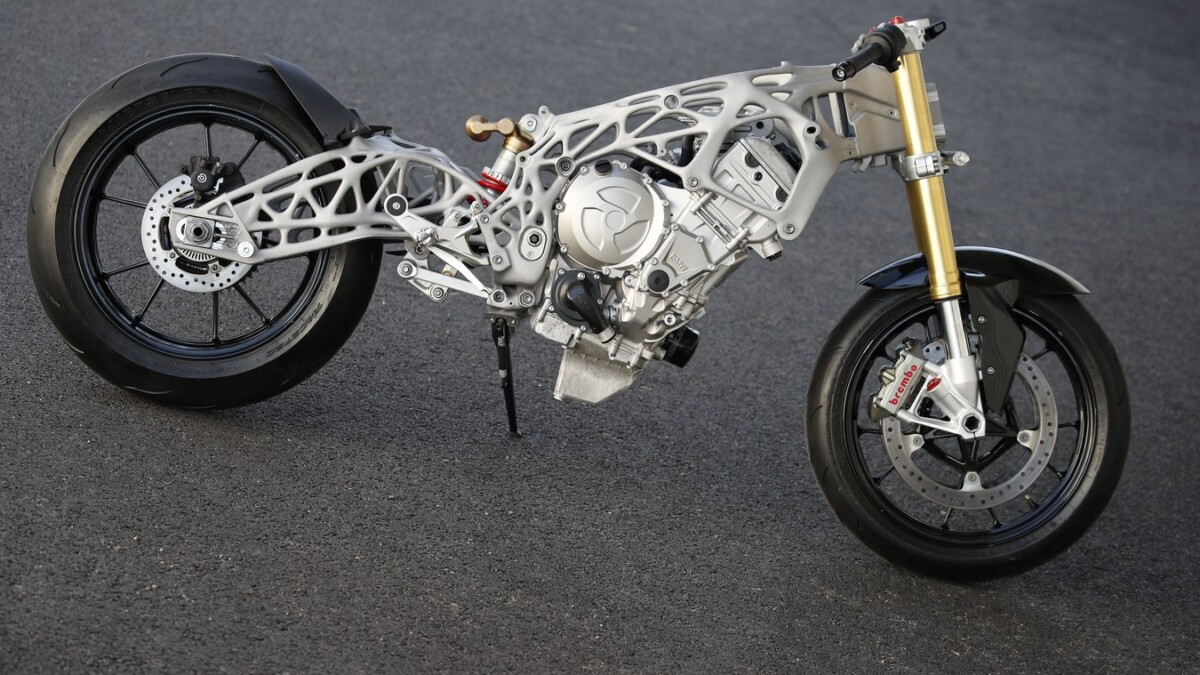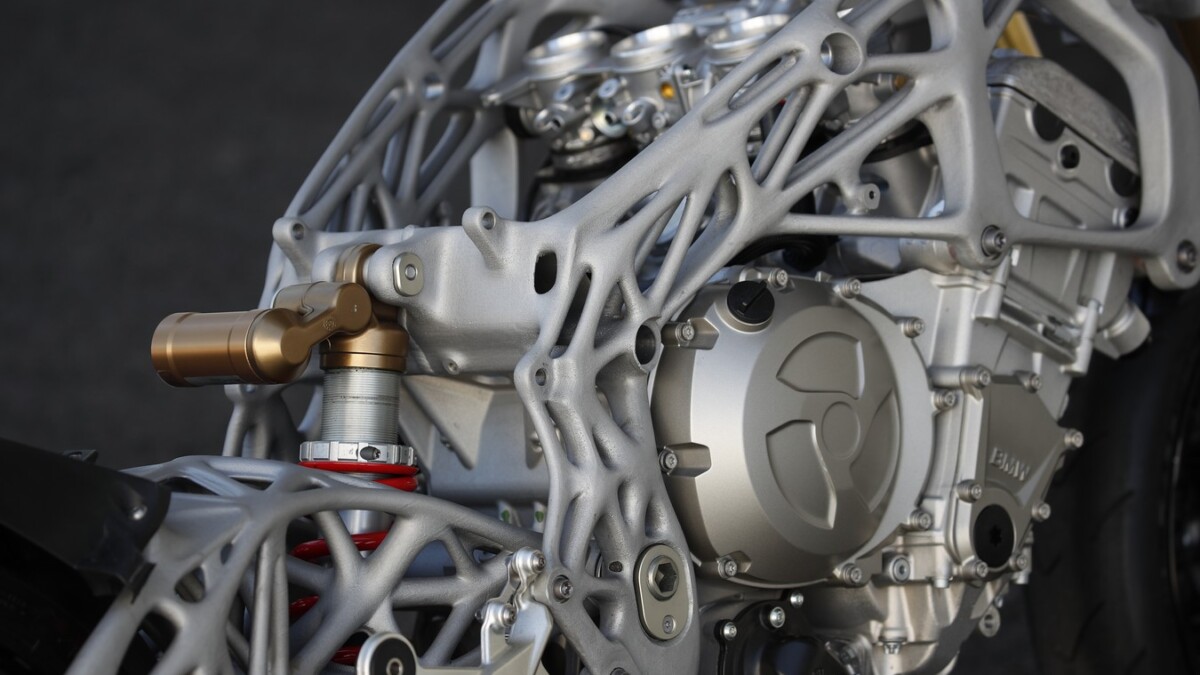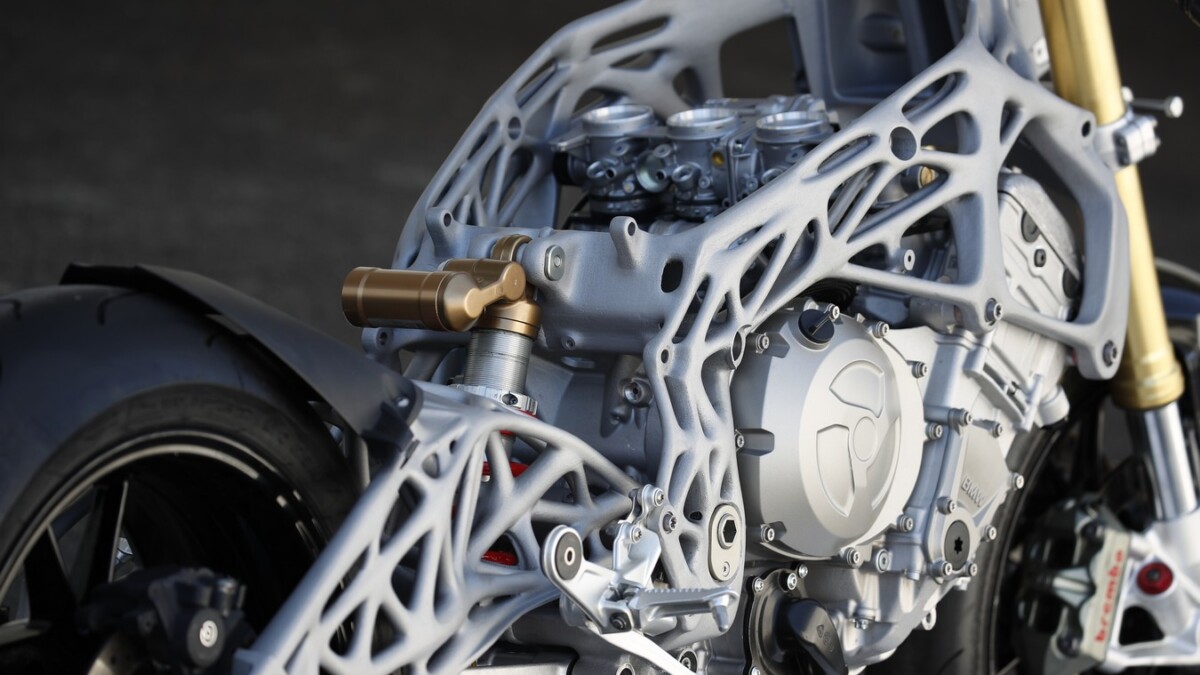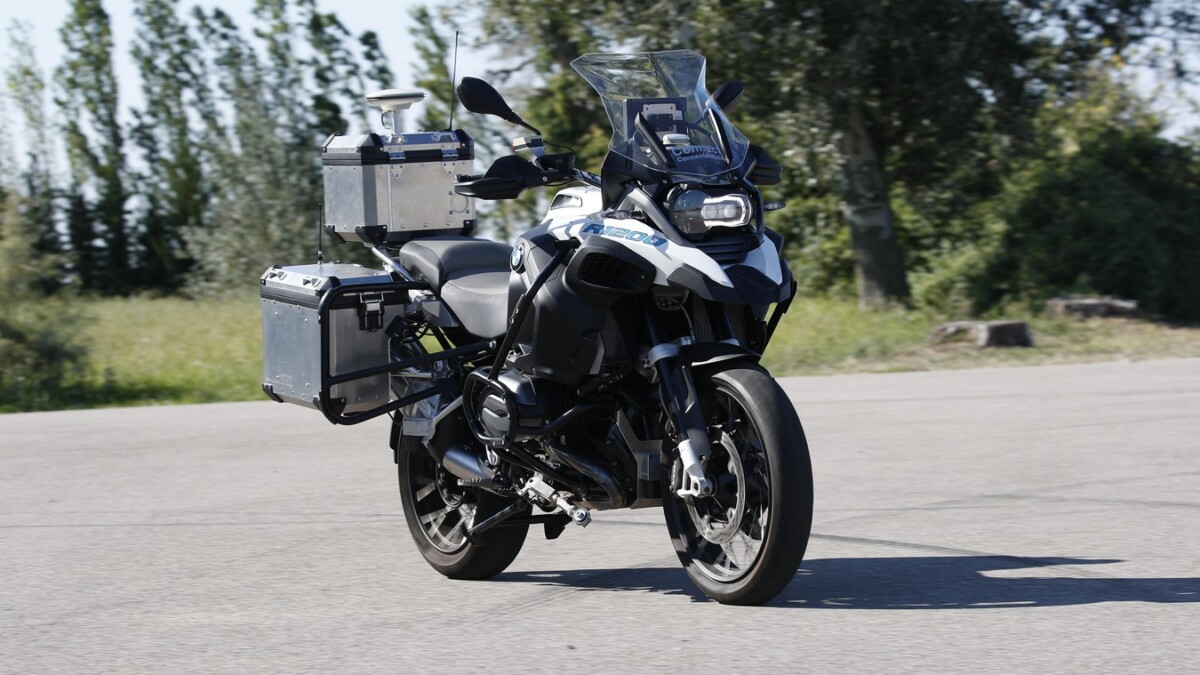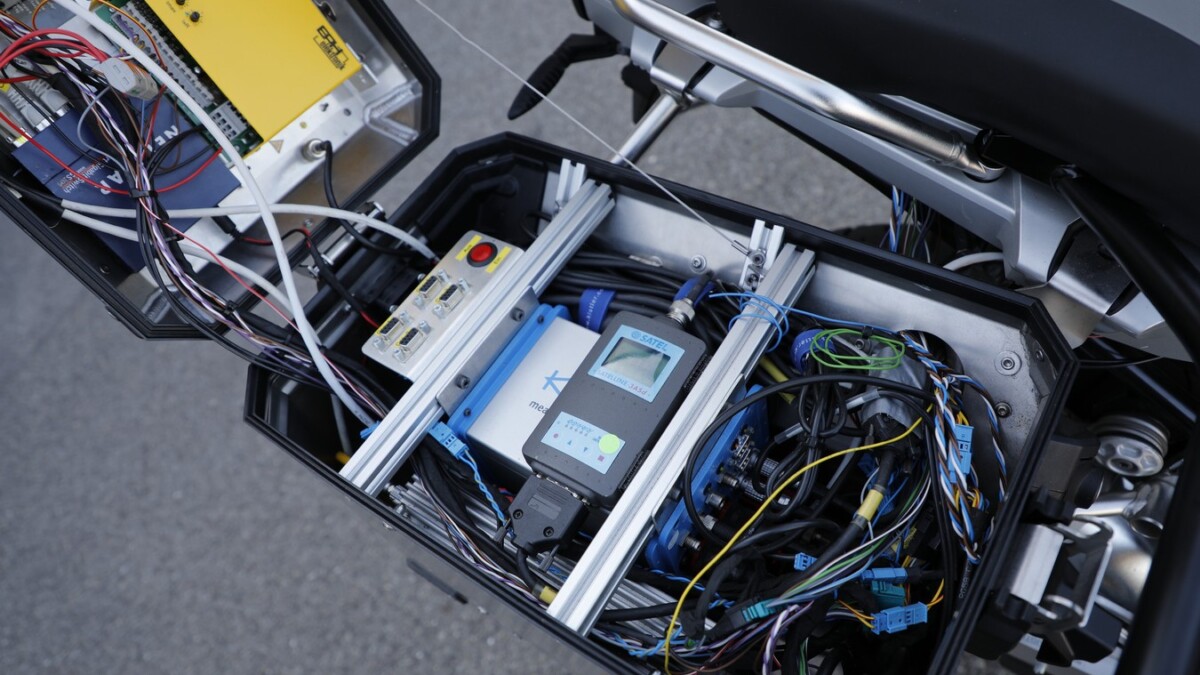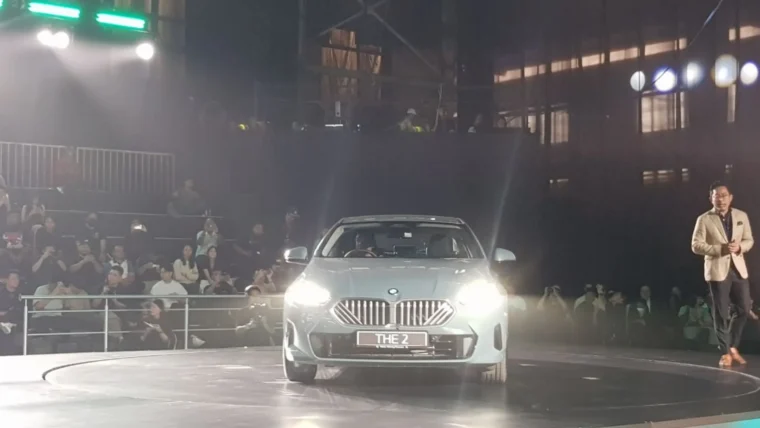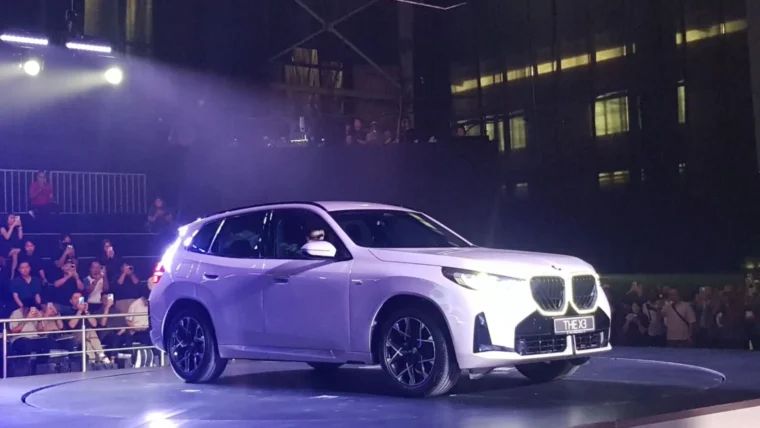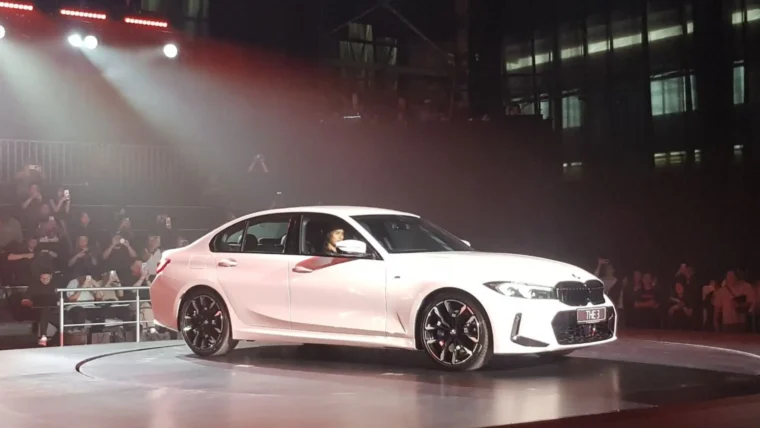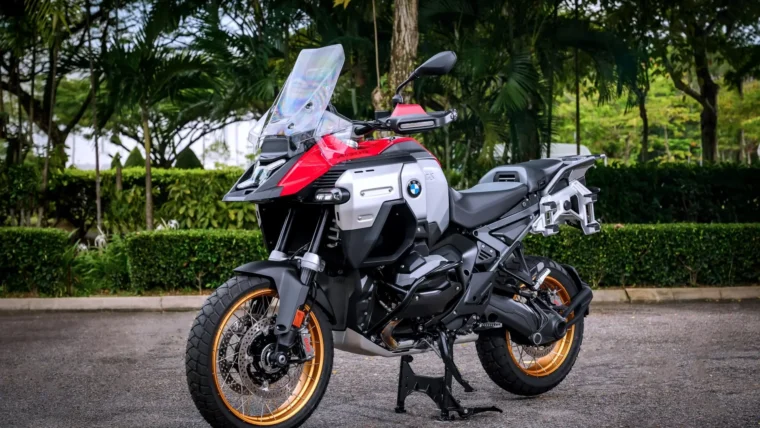BMW Motorrad’s first autonomous motorbike was presented last week at the BMW Motorrad Techday 2018. A BMW R 1200 GS made its first rounds in front of assembled journalists, as if by magic, at the BMW Group testing ground in Miramas, southern France. Developed by graduate engineer Stefan Hans and his team, the vehicle independently drives off, accelerates, circles a winding test track and independently slows down to a stop.
With this forward-thinking development, BMW Motorrad, as a driver for technical innovations in the field of motorcycling, is by no means aiming for a completely independent motorbike. Rather, the underlying technology should serve as a platform for development of future systems and functions to make motorcycling even safer, more comfortable and increase the riding pleasure. The aim of the prototype is to gather additional knowledge with regards driving dynamics in order to detect dangerous situations early on and thus support the driver with appropriate safety systems while turning at intersections or when braking suddenly, for example.
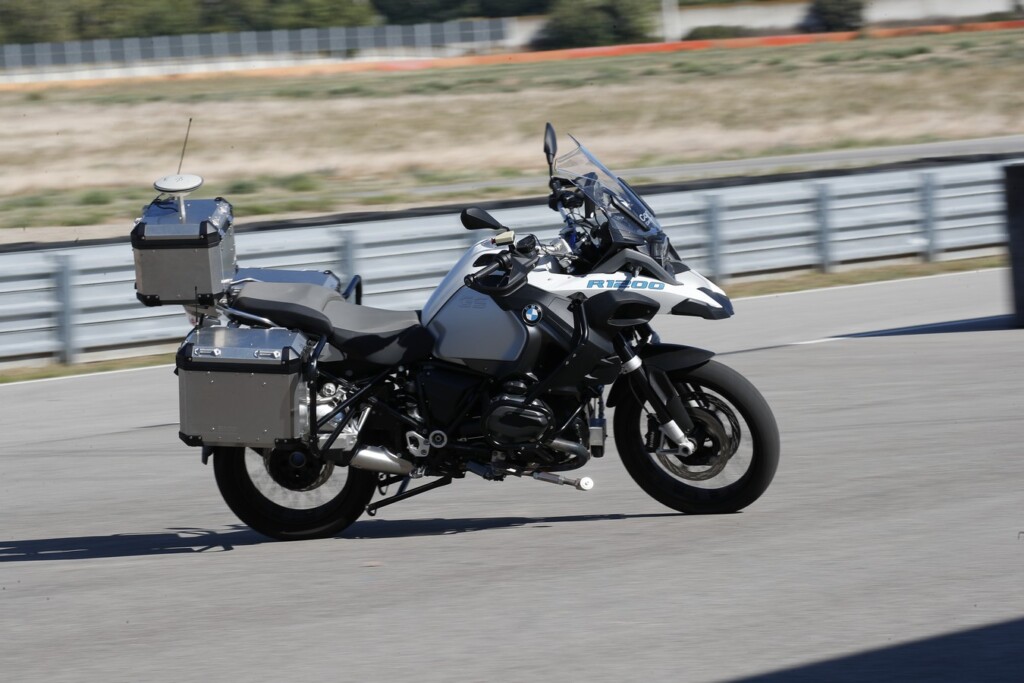
In addition to this impressive outlook on increased riding pleasure and safety, BMW Motorrad presented many more exciting technology projects. Luminous motorcycle headlights from cornering lights to laser headlights were highlights as well as a motorcycle frame manufactured completely using a 3D printing process, including a rear swinging arm. As with the development of its autonomous motorcycles, BMW Motorrad here too has utilized synergies with BMW automobiles – this manufacturing process has already made its way into series production for various vehicles. The advantage of 3D printing lies in the complete freedom of designing components that could not be produced in other ways.
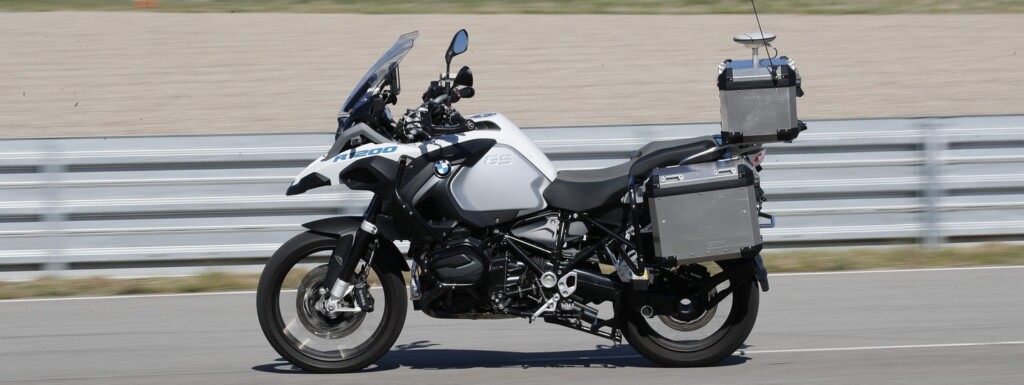
The innovative processes used in the production of motorcycle chassis components, such as frame, swinging arm and wheels are made from the lightweight, yet high-strength material carbon – already industrially manufactured in the BMW HP4 RACE – further demonstrating BMW Motorrad’s technical competence and excellence in this field. With the goal of maximum innovation and highest possible quality, BMW Motorrad and BMW Automobile have a close alliance in this field too, where this material has long been used in series production.
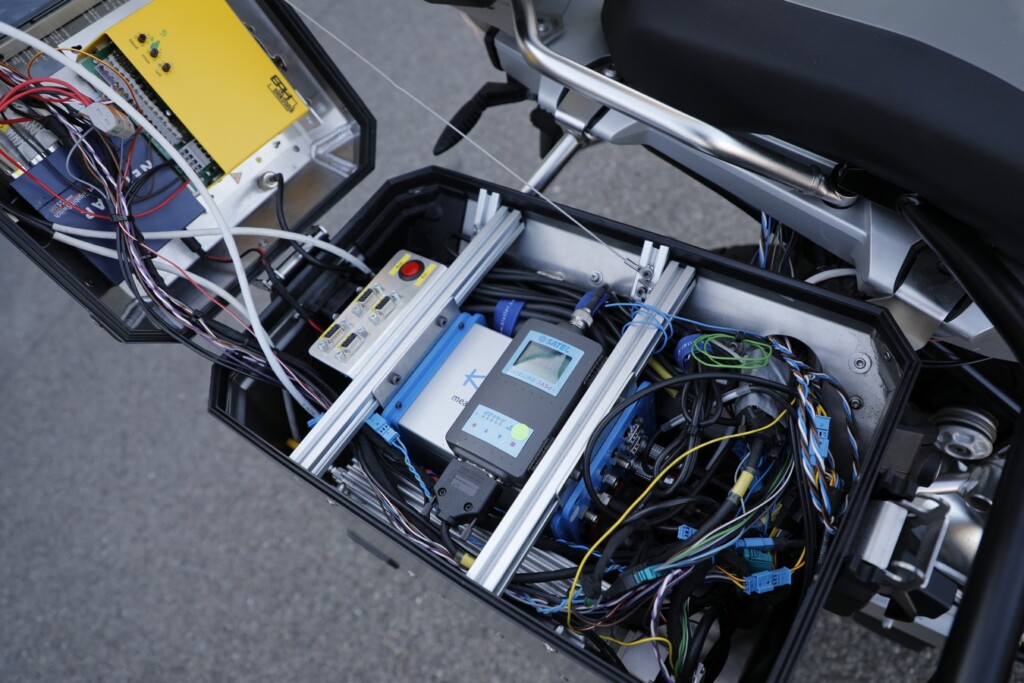
To conclude, BMW Motorrad has demonstrated how the rapid pace of digitization will change the future of motorcycling. BMW Motorrad is taking two-wheeler needs into consideration for tomorrow’s world of transport and preparing for it technically. Above all, the V2V communication between vehicles are in the foreground further enhancing safety and comfort for the motorcyclist through digital networking. Here, too, BMW Motorrad benefits from close cooperation with BMW Automobiles.
Other posts by Mark Leo

